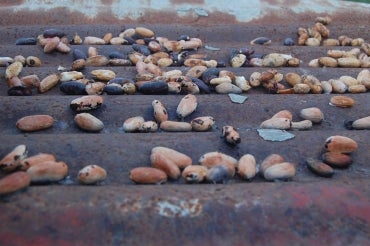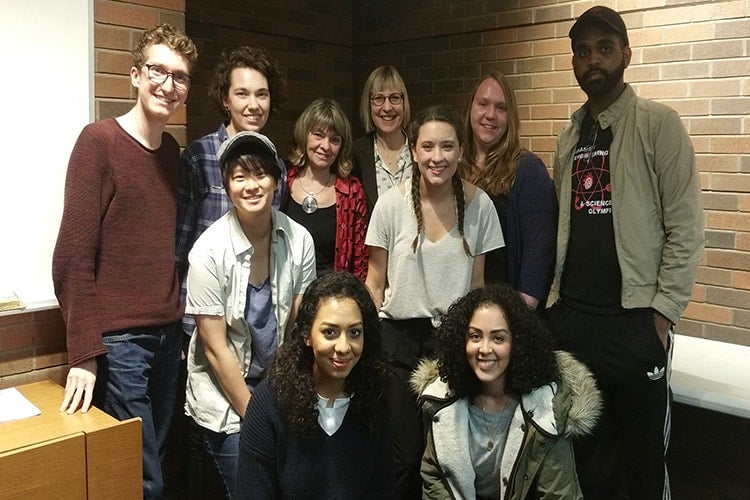From cocoa to corn: U of T students explore Indigenous food production in Belize

Published: May 17, 2017
Sampling squares of pure, Belizean chocolate gave students at U of T's New College a taste of what they'll experience in Belize this week.
A group of U of T students is visiting Indigenous communities in the Central American country to learn about traditional – and innovative – food production methods including cacao and corn.
“This isn’t about looking at old ways,” said Lori Stahlbrand, New College food equity coordinator and lecturer. “This is about a system in motion."
Stahlbrand and June Larkin, associate professor, teaching stream and director of equity studies, will be travelling to Belize with students from equity studies, Caribbean studies, Aboriginal studies, First Nations House and human biology on an experiential-learning trip in partnership with the Center for Engaged Learning Abroad (CELA) in Belize.

Trip participants include, from left to right, Braden Kenny, Dany Villanueva, Skyler Fantin, Associate Professor June Larkin, Riham Abu Affan, Lecturer Lori Stahlbrand, Atlanta-Marinna Grant, Nourhan Moustafa, Katrina Duncan and Farhan Mahmood (photo by Devangi Vaghela)
Students have been learning about how Indigenous food production differs from conventional agricultural practices, which involve the use of fertilizers, chemicals and pesticides to grow crops quickly with high yield.
U of T is linking up with CELA's Filiberto Penados, an internationally-recognized scholar of Indigenous studies and education. Penados, who is based in Belize will guide the students through their travels as they learn about concepts like food sovereignty and agro-ecology.
“Agroecology is actually about working with natural systems. It’s a very different approach – working with in harmony not just with nature but also societies,” Stahlbrand says.
The students will begin their journey at Succotz Village – a village of Yucatec Mayan ancestry – and will continue into Garifuna country with a stop in Belmopan and then the Mayan community of Laguna Village.
The trip is largely funded by the Faculty of Arts & Science’s The Dean's International Initiatives Fund, which supports international programs to give students the opportunity to study and work abroad.
Upon returning to U of T, students will work with the New College food systems coordinator to plan a series of food events for the 2017-2018 school year.



